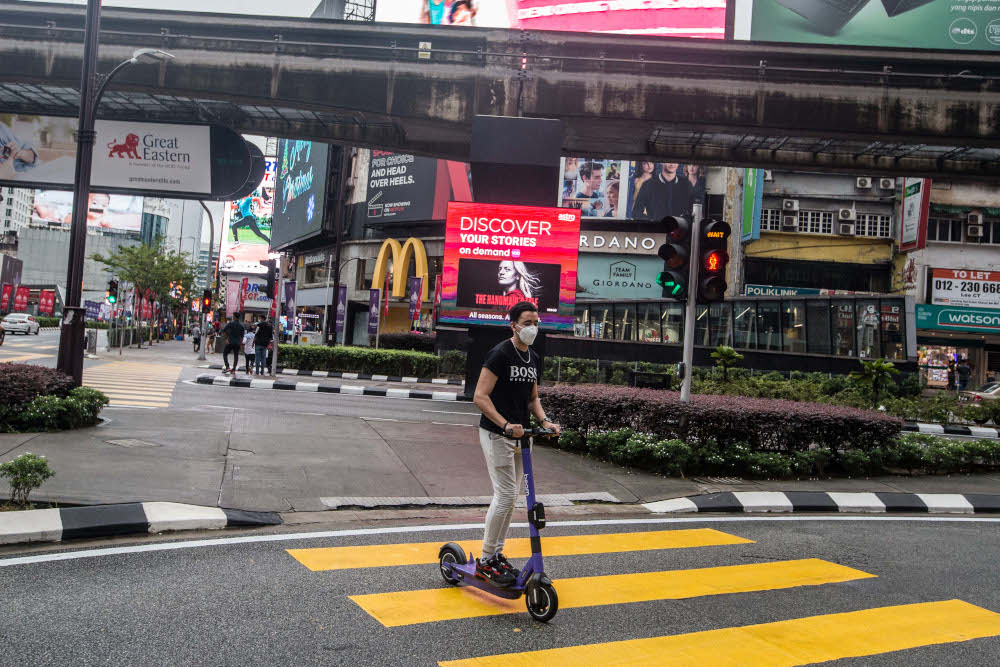KUALA LUMPUR, April 27 — The Galen Centre for Health and Social Policy has today expressed concern about the inclusion of wheelchairs and mobility scooters in a wide-ranging ban on the use of micromobility vehicles on roads announced by the government.
Its chief executive Azrul Mohd Khalib said these policies will significantly affect the disabled community which depends on these devices for their mobility.
“Unfortunately, the restrictions and limitations introduced by the new regulations appear to reflect limited understanding and lack of consultation with the disabled community.
“Were the disabled community consulted prior to the inclusion of their personal mobility devices or aids in this ban?” he said in a statement.
Azrul’s statement comes after transport minister Datuk Seri Wee Ka Siong’s announcement on the ban of micromobility vehicles such as mopeds, personal mobility devices and personal mobility aids on public roads.
Moped is a two-wheeled or three-wheeled electric-powered vehicle with a maximum speed not exceeding 50 km/h.
Azrul said living with a disability is a fact of life for many Malaysians and personal mobility is something that the able-bodied often took for granted.
“For a person with disabilities, particularly those with impaired movement, the ability to move independently, without assistance from others, and to participate in social activities, is vital for better health and improved quality of life,” he said.
He added that the reality of roads, city planning, and public transportation in Malaysia is far from ideal.
“Not all persons with disability have access to private vehicles that are adapted for their use to get from point A to B. They often depended on themselves.
“People with disabilities are using their personal mobility devices such as mobility scooters and electric wheelchairs to move from their homes to nearby shops, cafes and malls.
“They are often forced to use the road for their travel, as walkways and pavements in Malaysia are frequently not disabled-friendly,” he said adding that the pavements are high, without slopes for access and surfaces can even be hazardous and dangerous for movement of wheelchairs or other personal mobility devices, due to broken and unrepaired surfaces, as well as ongoing construction.
He added that anyone who is a frequent user of the pavements and walkways in the Klang Valley can empathise and agree that even in places like Brickfields, the disabled would not be able to use their wheelchairs on pedestrian pavements easily even if they wanted to.
“Ironically, the new legislation appears to even ban the use of these personal mobility aids from using pedestrian crossings and overhead walkways which are equipped with lifts and designed to be disabled-friendly,” said Azrul.
He further stressed that mobility aids are devices designed to help people who have problems with mobility.
“These devices enable personal mobility with the greatest possible independence for persons with disabilities. They reduce pain, and increase confidence and self-esteem.
“The use of powered or motorised wheelchairs in particular improves daily routines, reduces the dependence on caregivers, and increases the ability to engage in mobility-related activities and social participation.
The transport ministry has since reminded that a RM300 fine would be imposed against those who failed to comply with the rules which would be enforced by the police and the Road Transport Department.
Its minister said the use of the three categories of micromobility vehicles was, however, allowed in areas where there was no mixture of traffic flows involving various vehicles.



















